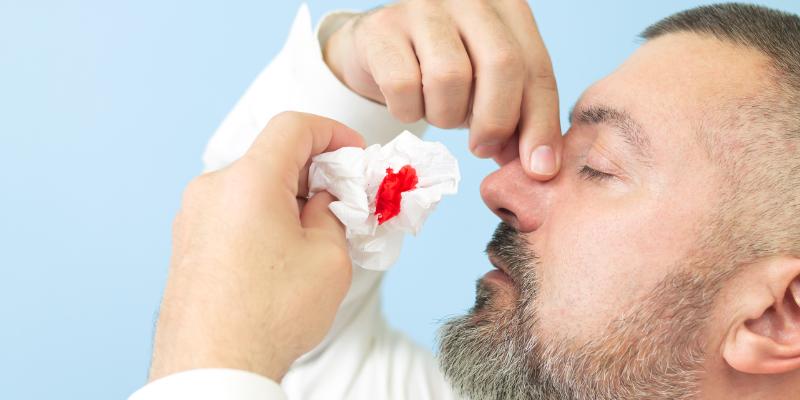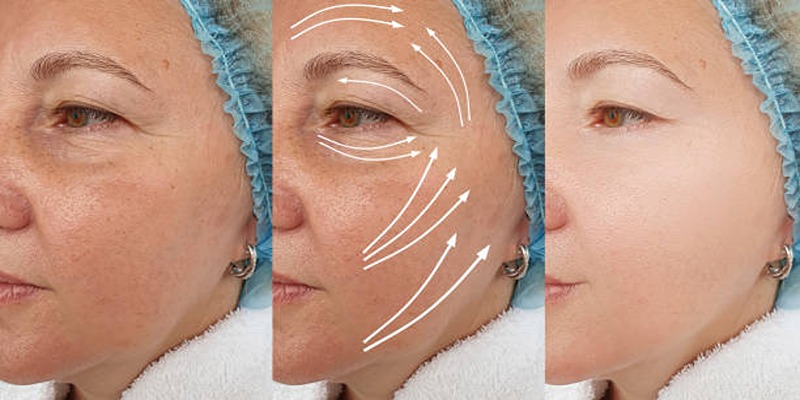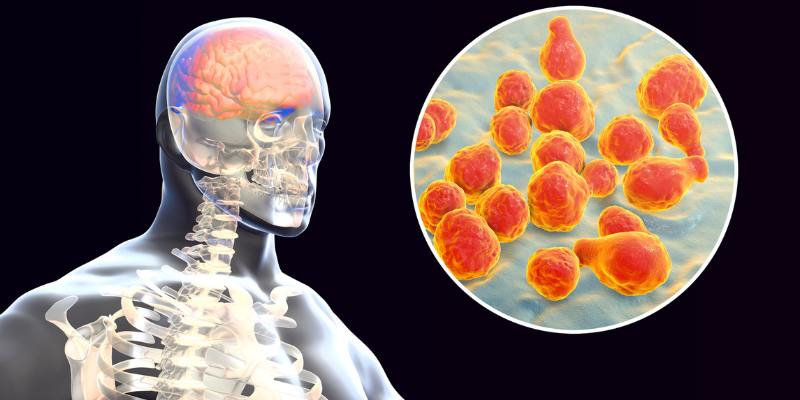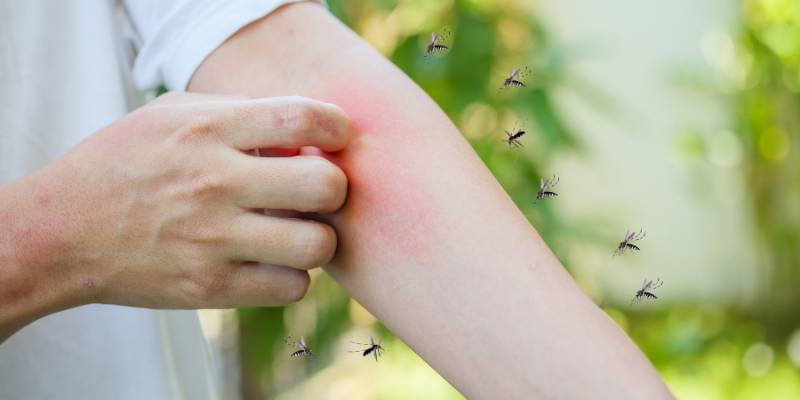Mosquito Bites: Explore Its Symptoms, Causes, And Prevention Tips
Advertisement
Mosquito bites are a common nuisance, especially during the warmer months. While many people find them annoying, for some, they can cause severe reactions or even transmit diseases. Mosquitoes are known to spread illnesses like malaria, dengue, and Zika virus, making their bites more than just an inconvenience. Understanding the symptoms, causes, and prevention tips for mosquito bites is essential in reducing the risk of adverse effects.
In this article, we'll explore what happens when a mosquito bites you, the causes behind the itching, and how you can prevent getting bitten in the first place.
Symptoms of Mosquito Bites:
- Itching and Redness:
The most common symptom of a mosquito bite is itching, along with the formation of a minor, raised bump. This happens because the mosquito injects saliva containing anticoagulants into the skin while feeding on blood. The body reacts by releasing histamines, causing swelling and itching around the bite site.
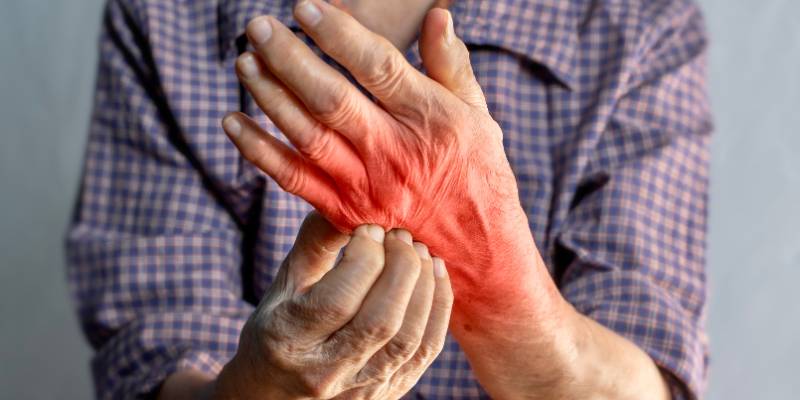
- Swelling and Inflammation:
In addition to itching, mosquito bites can lead to swelling around the affected area. This is part of the body's inflammatory response to the foreign proteins in mosquito saliva. The degree of swelling varies from person to person and can be influenced by factors like the individual's immune system and the type of mosquito.
- Pain and Tenderness:
Though less common, some individuals may experience pain or tenderness at the mosquito bite site. This may occur if the bite becomes infected or the immune system responds with an increased inflammatory reaction. The pain is usually temporary and resolves within a few hours.
- Blisters or Rashes:
For individuals with more sensitive skin or allergic reactions, mosquito bites can lead to the formation of blisters or rashes. This is often more severe in people susceptible to mosquito saliva or who suffer from an allergic response known as Skeeter syndrome.
- Systemic Reactions (In Rare Cases):
In sporadic cases, individuals with severe allergic reactions to mosquito bites may experience symptoms such as dizziness, difficulty breathing, and swelling of the throat, known as anaphylaxis. This is a medical emergency and requires immediate attention.
Causes of Mosquito Bites:
- Mosquito Feeding Habits:
Mosquitoes feed on blood to obtain the proteins necessary for egg production. Only female mosquitoes bite humans and animals, while males feed on nectar. They are attracted to their hosts by body heat, carbon dioxide, and specific chemicals in sweat, such as lactic acid. These factors increase the likelihood of mosquitoes targeting humans.
- Time of Day and Location:
Certain species of mosquitoes are more active at specific times of day. For example, the Aedes mosquito, known to spread diseases like dengue and Zika virus, is most active during the early morning and late afternoon. Additionally, mosquitoes thrive in areas with stagnant water, such as puddles, ponds, or even containers left outside.
- Climate and Environmental Conditions:
Mosquitoes are most prevalent in warm, humid climates and ideal for breeding. Areas with frequent rainfall provide perfect conditions for mosquitoes to lay eggs. This is why mosquito populations flourish during rainy seasons or in tropical regions.
- Mosquito-Borne Diseases:
While mosquito bites are typically harmless, they can also transmit serious diseases. The mosquitoes responsible for transmitting diseases like malaria, dengue fever, Zika virus, and West Nile virus carry pathogens that can infect humans. These diseases are widespread in tropical and subtropical regions but can also appear in temperate areas under certain conditions.
Prevention Tips for Mosquito Bites:
- Use Insect Repellents:
One of the most effective ways to prevent mosquito bites is by applying insect repellents containing DEET, picaridin, or oil of lemon eucalyptus. These ingredients are proven to keep mosquitoes at bay for hours. Follow the instructions on the product label to ensure proper use and effectiveness.
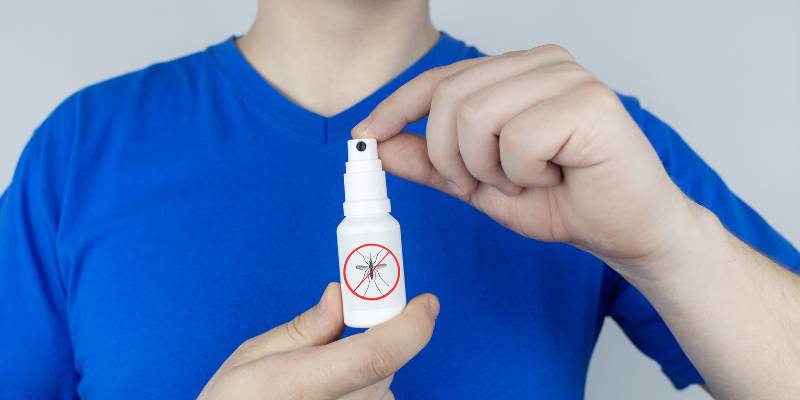
- Wear Protective Clothing:
Wear long-sleeved shirts, long pants, and socks outdoors, especially in areas with high mosquito activity. Light-colored clothing is preferred as it is less likely to attract mosquitoes than darker colors. Additionally, treating clothing with permethrin, an insect-repellent compound, can provide protection.
- Avoid Peak Mosquito Activity Hours:
Mosquitoes tend to be more active at dawn and dusk. Try to avoid outdoor activities during these peak times. If you must be outside, wear protective clothing and use mosquito repellent.
- Eliminate Breeding Grounds:
Mosquitoes breed in standing water, so removing stagnant water around your home is essential. Empty containers like flower pots, bird baths, and clogged gutters regularly to prevent mosquitoes from laying eggs. Consider using larvicidal treatments in areas with persistent standing water, such as ponds.
- Install Mosquito Screens:
Ensure that windows and doors are correctly sealed and fitted with mosquito screens. This can help keep mosquitoes out of your home, particularly at night when they are most likely to enter. Consider sleeping under a mosquito net to avoid bites while resting in areas with a high mosquito population.
- Use Mosquito Traps and Zappers:
In areas with a high concentration of mosquitoes, traps or zappers can help reduce the population. These devices attract and kill mosquitoes using light or carbon dioxide, helping to limit the number of mosquitoes in the environment. While not foolproof, they can be a practical part of an integrated mosquito control strategy.
- Use Natural Repellents:
Essential oils such as citronella, lavender, and eucalyptus can act as mosquito repellents for those who prefer a more natural approach. These oils can be used in diffusers or diluted and applied to the skin. While natural repellents may not be as long-lasting as chemical options, they can still offer some protection.
- Vaccination and Preventive Medication:
In areas where mosquito-borne diseases are prevalent, vaccines and preventive medications may be available. For instance, malaria prophylaxis is recommended for travelers visiting high-risk areas. Always consult a healthcare provider to ensure you're up-to-date on necessary vaccinations or medications before traveling.
Conclusion
Mosquito bites are more than just an itchy annoyance; they can also pose a significant health risk, especially in areas where mosquito-borne diseases are common. By understanding the symptoms and causes of mosquito bites, you can take steps to prevent exposure and minimize the risk of complications.
Regular use of insect repellents, wearing protective clothing, and eliminating standing water are simple yet effective ways to reduce mosquito activity around your home. Don't let mosquitoes ruin your outdoor enjoyment—take the necessary precautions and stay safe!
Advertisement






